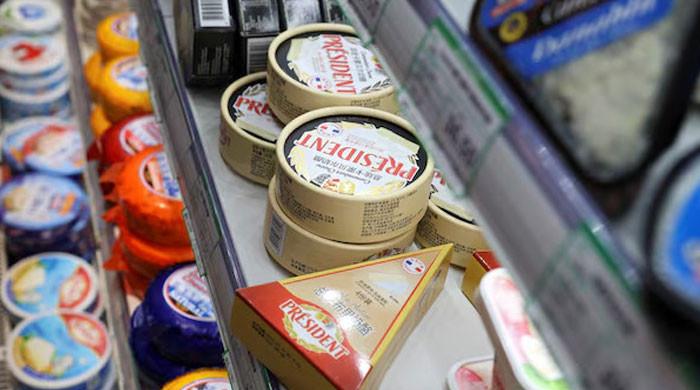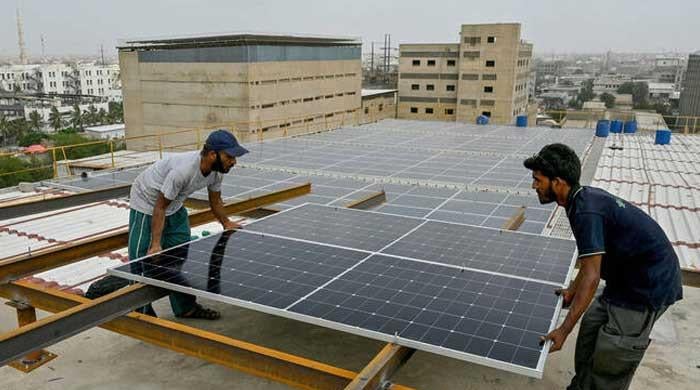Industrial output drops 10.26% in FY23
Almost all major industries report substantial declines; contraction driven by combination of factors
August 16, 2023

- Almost all major industries report substantial declines.
- Contraction was driven by a combination of factors.
- The downward trend began in May 2022.
ISLAMABAD: Pakistan's large-scale manufacturing (LSM) sector contracted by 10.26% in the fiscal year of 2022-23, as almost all major industries reported substantial declines, official data showed on Tuesday, according to The News.
The LSM sector, which accounts for about 80% of the country's industrial output, shrank for the 12th consecutive month in June, by 14.96% year-on-year, though, over May 2023, it grew by 0.98%, according to the Pakistan Bureau of Statistics (PBS).
The contraction was driven by a combination of factors, including rupee devaluation, high bank financing costs, expensive energy, and local economic and political instability, analysts said.
In the fiscal year 2021-22, the manufacturing sector in Pakistan recorded a robust growth rate of 11.7% compared to FY21.
The growth was then attributed to rising global demand and favorable government policies that stimulated the sector and made significant contributions to overall GDP growth.
Throughout the financial year 2022-23, the LSM sector experienced a broad-based contraction on a monthly basis. The downward trend began in May 2022 and persisted into the start of FY23 in July, with a contraction of 1.86%.
In January 2023, the output declined by 7.8%, followed by a decrease of 11.59% in February. March saw a steep decline of 25%, while April recorded a negative growth of 21.07%. In May, the contraction stood at 14.4% and now in June, it was at negative 14.96%.
Out of the 22 sectors, only four sectors witnessed low to moderate positive growth, while the rest experienced substantial declines. Garments, football, food, and furniture were the only sectors that saw an increase in output compared to the corresponding month of the previous year.
In June 2023, a few major sectors reported increased output compared to the same month of the previous year.
Garments rose by 40.95%, furniture by 104.44%, football by 10%, and food by 6.28%.
However, textiles experienced a significant decline of 19.78%, leather by 3.84%, beverages 23.54%, tobacco 44%, wood products by 3.06%, paper and board 27.2%, coke and petroleum products 28.8%, chemicals by 7.2% (including an 8.35% decline in chemical products and a 6.38% reduction in fertilizer production), pharmaceuticals with a decline of 46.77%.
Rubber products output contracted by 15.5%, non-metallic mineral products by 24.3%, iron and steel output decreased by 9.01%, fabricated metal by 20.91%, computer, electronics, and optical products by 42.7%, electrical equipment by 26.57%, machinery, and equipment by 64.4%, Automobile 71.7%, other transport equipment reduced by 48.15%.
Besides, sugar production was reduced by 41.3%, cotton yarn production declined by 29.9%, cotton cloth by 17.4%, and cement output contracted by 25.23% over the same month of last year.
The average growth from July to June 2022-23, garments rose by 27.16%, furniture by 35.5%, football by 29%, and leather by 1.29% over the same period of last year.
Interestingly, food output contracted by 6.9%, beverages by 6.43%, tobacco by 28.4%, wood products by 59.8%, paper and board by 8.66%, coke & petroleum products by 13.4%, chemicals by 6.96% (including chemical products minus 3.99% fertilizer by minus 9%), pharmaceuticals with a decline of 28.85%.
During these 12 months, rubber products output contracted by 4.97%, non-metallic mineral products by 12.1%, iron and steel output decreased by 5.12%, fabricated metal by 16.1%, computer, electronics, and optical products by 30.34%, electrical equipment by 15.46%, machinery, and equipment 45.2%, automobile 50%, other transport equipment reduced by 40.44%.
Sugar output was also reduced by 15.3%, cotton yarn production declined by 22.1%, cotton cloth by 12.4%, and cement output contracted by 13.7% over the same period of last year.









